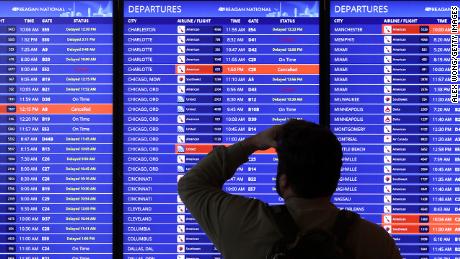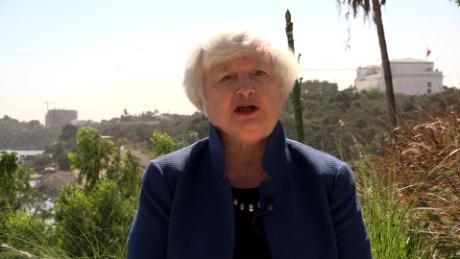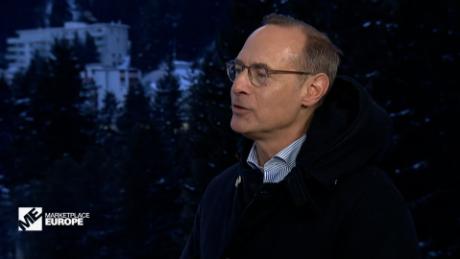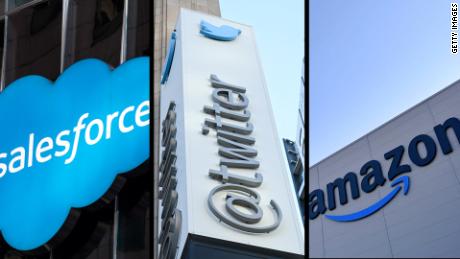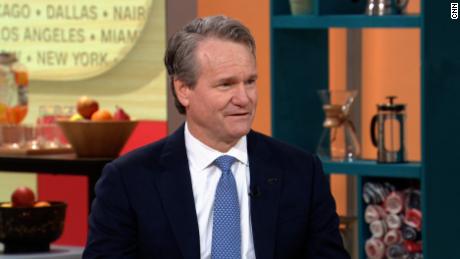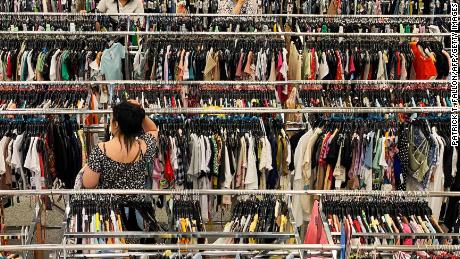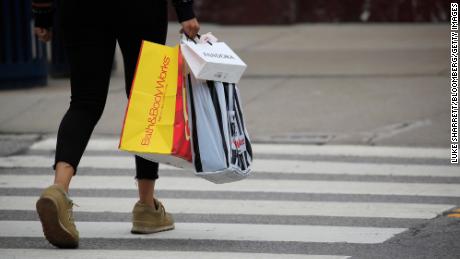New York (CNN Business)President Donald Trump certainly lived up to his self-proclaimed status as the King of Debt during his term in office. The national debt spiked by $7 trillion during Trump's tenure -- and it's about to soar much higher under his successor.
Armed with a slim majority in the US Senate, President-elect Joe Biden is expected to make the case Thursday for a $2 trillion fiscal package to repair and rebuild the economy. That would be on top of the $900 billion relief package launched last month.
The proposal, made up of $2,000 stimulus checks, state and local aid, and unemployment insurance, aims to shore up a recovery that looks increasingly fragile. The Biden team's package is a "shoot for the moon" approach, one lawmaker told CNN.
Adding to America's $27 trillion mountain of debt may be painful, but it's the wise move given the scale of the problems and dirt-cheap borrowing costs.
"This is not the time to tighten the belt. The economy is in no condition for austerity," said Joe Brusuelas, chief economist at RSM.
Another 965,000 Americans filed for first-time unemployment benefits last week, up sharply from 784,000 the previous week. Jobless claims remain well above the worst levels of the Great Recession. The United States lost 140,000 jobs in December, the first decline since the spring.
"This is the time to hit the fiscal accelerator to get the animal spirits moving and get the economy back on track," Brusuelas added. "It's a no-brainer."
'Very deep hole'
At this point, there are no tax hikes in the works to offset the cost. The goal of pursuing even more deficit-spending, so soon after the last package, would be to limit the scarring caused by the health crisis and address worsening inequality.
Despite the record stock market highs, parts of the economy are reeling. Movie theaters, airlines, hotels and other sectors are hemorrhaging losses. The Back-to-Normal Index, created by CNN Business and Moody's Analytics, shows that the US economy is operating at just 74% of where it was in early March.
"We're still in a very deep hole. We could do tremendous long-run damage to the economy if we don't get things done quickly," said Gus Faucher, chief economist at PNC.
Faucher added that failing to repair the economy now will make it harder to fix the budget later and address structural challenges posed by Medicare and Social Security.
"If we don't get stimulus and we limp along, you'll be fighting over a smaller pie," he said.
'Fiscally reckless'
Others argue the Biden team should wait a few months to assess the impact of last month's $900 billion package, which provided more small business loans and prevented unemployment benefits from expiring.
"It seems quite premature to say we need another $2 trillion now given what we just passed," said Maya MacGuineas, president of the Committee for a Responsible Federal Budget, a bipartisan fiscal watchdog group.
Still, she acknowledged "we probably need to do more borrowing before it's time to pivot away."
In early January, CRFB projected the US budget deficit would total $2.3 trillion for fiscal 2021, down from $3.1 trillion last fiscal year. But at 10.4%, debt-to-GDP would be higher than any other time in US history outside of World War II.
Given that Democrats now control the US Senate, MacGuineas said the budget deficit is likely to go even higher than previously estimated.
The US balance sheet was in tatters long before the pandemic erupted, as lawmakers have continually avoided making painful reforms to Social Security and Medicare. The deficit exploded during the Trump era amid bipartisan spending surges and GOP tax cuts, which failed to pay for themselves. The United States entered the pandemic with a $1 trillion deficit.
"The Trump administration was one of the most fiscally reckless of recent times," said MacGuineas. "On every chance to make the fiscal situation better, this administration chose to make it worse."
$2,000 stimulus checks -- but to whom?
The Biden administration may have a difficult time convincing lawmakers to support $2,000 stimulus checks -- a popular idea advocated by both Trump and Senator Bernie Sanders.
Led by Majority Leader Mitch McConnell, many Republicans have opposed $2,000 stimulus checks. Last week, moderate Democrat Senator Joe Manchin initially told the Washington Post he was "absolutely" against $2,000 stimulus checks. He later clarified he could support more checks if they were narrow in scope and targeted for those who need them.
The $2,000 stimulus checks are needed right now.
Nearly 8 million more Americans have joined the ranks of the poor since June, according to researchers from the University of Chicago and University of Notre Dame. And about 27 million adults were in households where there was sometimes or often not enough to eat in the last seven days, according to a Census Household Pulse Survey late last year.
Yet the red-hot stock and housing markets suggest other families are doing better than a year ago.
Brusuelas said the next round of stimulus checks should be limited to unemployed Americans and those who can document income loss. "We can't be putting forward money in an undisciplined way," he said.
Rock-bottom rates -- for now
Biden enters the White House during a time of unthinkably low interest rates. The United States can borrow for 10 years at just 1%, compared with about 3% when President Obama took office.
But if borrowing costs rise significantly, that mountain of debt will become that much heavier.
That's why Peter Orszag, Robert Rubin and Joseph Stiglitz argue in a paper published Thursday that Washington needs to take a totally different approach. Their article, in the Peterson Institute for International Economics, lays out a plan to reduce the budget's exposure to interest rate swings by extending debt maturities, while at the same time automatically adjust spending in response to economic conditions.
"While low interest rates change the contours of the fiscal debate," the trio wrote, "they should not be assumed to persist forever."


